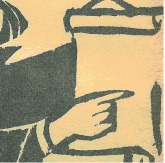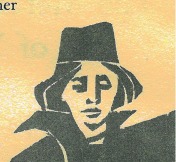Merchant Of Venice Translation Pdf Download
The Play

Site by Jonathan Star The Merchant of Venice A Contemporary English Version, with Notes and Commentary
All Material copyright (c) Jonathan Star, 2009
by Jonathan Star
A Note on this "Translation"
I have attempted to "translate" this work from the Early English of Shakespeare into contemporary Modern English while preserving the emotive and rhythmic power of the original text. I have been careful to try and present the true meaning of the original lines as well as preserve the iambic pentameter and the rhyme schemes; however, in a few places, I have offered some radical departures from the original text—not so much to change the intent of the original but to try and bring it more clearly into focus for the modern reader.
A "translation" of this sort not only involves a clarification of the original words but also a translation of the Elizabethan mindset. For example, the controversy over usury during Elizabethan times carried a lot more vehemence and emotional power than it does today—and the nexus of the play centers around this conflict. However, if the Elizabethan view of usury is not brought to bear for the modern reader then the driving force behind much of the action is lost. In a modern reading of the play the central conflict appears to be between Antonio, a Christian, and Shylock, a Jew; however, it is more accurately between Antonio, a righteous Christian man, and Shylock, an unethical money-lender (who happens to be Jewish). To bring the modern reader "up to speed" on the Elizabethan attitude toward usury (and Antonio's attitude in particular) I suggest the addition of a few new lines at the opening of the play. Thus, the "revised version" of the play opens with Antonio telling of his hatred for the institution of usury rather than him going on about his sadness (which is a theme out of sync and irrelevant to the rest of the play). Several other suggested emendations were also made including a critical reply to Shylock's famous speech about the likeness between Christians and Jews and a new scene where Shylock reveals the reason why he asked for a "pound flesh." All the emendations have a purpose: to clarify the action of the play and make the motivations of the characters more precise.
>> See Emended Opening Scene (Regarding Antonio's view of Usury).
Files Available for Download:
1. FULL PLAY -- Merchant_of_venice_12g.pdf
A complete version of the rectified play, with notes, commentary, and alternative renderings.
![]()
| merchant_of_venice_12gg.pdf | |
| File Size: | 1604 kb |
| File Type: | |
Download File
2. ADDITIONAL NOTES -- Additional_Notes.pdf
Additional notes, background material, commentary, and staging.
Related Essays

1) Bassanio and the Lottery: Did Bassanio receive help with the Lottery?
>> The Lottery
2) An Analysis of Name Similarity of the Three Sals: Salarino, Salanio, and Salerio
>> The Three Sals
3) An Analysis of Bassanio's Soliloquy:
>> Bassanio's Soliloquy
Additional Downloads:
1. A discussion of the legends, as cited by Lorenzo and Jessica, in their "night game"
2. A rectified version of 3.5 (which was deleted from the full version of the play)
3. Il Pecorone -- the primary source for the story of The Merchant of Venice
Character Analysis

Cognitive Types
The theory of Cognitive Types (or Character Types) holds that every person's thinking is shaped by his particular Cognitive Type (or pattern). Regarding a play or a piece of writing, this theory holds that the author's Cognitive Type (or thinking pattern) would be found in all the main characters regardless of the character's personality or motivation. Thus, every main character would display the same cognitive pattern as that of the author.
Part One of this essay explains the general principle of Cognitive Types with a special emphasis on Type 3 and Type 9. Part Two explores the way that Type 3 is evidenced in the thinking pattern of the main characters of the play—Portia, Antonio, and Shylock. Even though the main characters have dissimilar backgrounds, and are impelled by different forces, they all display the same Type 3 pattern of thinking. Thus, accordingly, one must assume that the author of the play was Type 3. However, William Shakespeare of Stratford was a Type 9. Could someone other than William Shakspeare have written this play? (I know that such statements about Type 9 and Type 3 makes no sense to someone who does not understand what a Cognitive Type is but it will make perfect sense once a person reads the paper in earnest and gains a rudimentary understanding understanding of these principles.)
For a more complete description of the Cognitive Types see: Dreamwork: And the Path of the Higher Hypothesis
This essay may shed some light on the Shakespeare Authorship Question---a question or controversy based upon the opinion of many that William Shakspere of Stratford did not write the Shakespeare plays. Regardless of this controversy, or where a person may weigh in on it, the main interest of this essay for people studying The Merchant of Venice is its in-depth character analysis of the play's three main characters. Of particular interest to this study of Cognitive Types involves the radical shift that Portia makes in the Court Scene.
To download this essay click file below:
Source: https://merchantofvenice.weebly.com/
Posted by: ronnylofinke06253.blogspot.com
Posting Komentar untuk "Merchant Of Venice Translation Pdf Download"